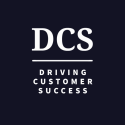The Evolution Of Customer Support And Why It’s Time To Rethink Its Role

When I was a developer in 2002, I joined a startup computer software company as a product support engineer. In this support role, my developer mindset gave me a unique perspective of the interdependencies between customer support and technology. What I learned then about customer support — and company growth — has informed the innovations driving my work today.
Looking back at the last three decades, many revealing patterns can be seen. The evolution of technology and go-to-market business models have directly impacted — and profoundly shaped — the role of technical support. Customer support is in a perpetual state of digital transformation, and to understand its future, we need to look at its past.
The Transactional Era Of Customer Support: 1990 to 2000, customer support was an afterthought. During this decade, customer relationships were transactional. The mantra of the time was, “If you build it, people will buy it.” A company’s prime responsibility was to build a product, and the sales team’s role was to drive revenue. After companies built a product, they moved on to building the next one.
Support was considered complementary and not necessary for the success of a business. Support teams were siloed and often housed in a separate building or, more likely, outsourced. Support’s sole responsibility was to deflect cases away from the product team so they could focus on the next product.
Just like everything else during this time, support datasets were captured in structured query language (SQL) databases. A support ticket was just a row in the database, and the ticket number was merely a database index key.
The Online Era Of Customer Support: From 2000 to 2010, support became supplementary and an additional revenue source. With the dot-com gold rush, businesses went online and became accessible anywhere and anytime. A digital presence was a key competitive differentiator, and digital marketing became vital for company growth. Companies needed to market themselves not only as product builders but also as product educators. Customer relationships were no longer “one-and-done” scenarios.
Now that businesses needed to be online at all times so did customer support. Web-savvy customers expected access to technical support around the clock, and around the globe. Support was often no longer a complimentary offering; instead, customers could choose to purchase premium support in addition to the product.
The XaaS Era Of Customer Support: From 2010 to 2020, customer support became collaborative, and everything as a service (XaaS) emerged as the norm. Customers were asked to pay according to a consumption model and product adoption became the key to revenue.
Subscription-model utility pricing spurred product-led growth. Products like AWS, Slack and Zoom were not only designed for self-service customers, but they prioritized product adoption before monetization.
The era offered three important new insights:
1. Target value toward the end users.
2. Focus on product adoption.
3. Turn users into salespeople.
With the rise of XaaS and product-led growth, customer support began playing a fundamental role in product adoption — and a company’s success. Gone were the transactional days of break/fix. Now, a technical issue that prevented the user from deriving value from the product not only slowed adoption but also could contribute to churn. As a result, support teams needed to be in close communication with sales, product and engineering teams, as well as the customers themselves, to fix issues as they arose and provide real-time support.
The Intelligence Era Of Customer Support: Today, customer support is front and center for all customer communication — from pre-sales to renewals — and has become revenue-critical. Customers not only expect companies to deliver service but also to provide business outcomes. And the trend will only accelerate in the coming decade.
Companies now need to think about seamlessly blending their product and service offerings. I call this service-led growth. In a service-led growth model, the end-user experience must transcend the boundaries of tickets. Service agents require instant access to all data related to a customer’s experience, from the account history to past interactions to what a customer is trying to achieve with a product.
The “DevOps” movement unified software development, deployment, testing and monitoring and the bug-fix cycle into a single function. Similarly, the pre-sales, post-sales, customer success, product feedback and churn prevention roles are intertwining. I think of this as “continuous customer success.”
This brave new world requires a new tech stack, in which customer experience is prioritized and vital context is preserved across ticket boundaries. To achieve this, businesses need an intelligence layer that understands and maintains context across data silos and conversational boundaries.
Why It’s Time To Rethink Customer Support’s Role (Again) With the introduction of artificial intelligence (AI), customer support’s role has continued to evolve. And now is the time to consider AI for use with customer support systems.
AI research has been going on for decades, but with advancements in big data technology and massive improvements in computing power, the promise of AI is finally being democratized at scale. AI is now becoming infused into every aspect of our daily workflow.
AI technology can tap into a company’s existing unstructured data, such as chat logs, call recordings and emails — in other words, human communication. You can now extract customer sentiments and product feedback, determine churn risk and predict customer escalations. You can share these insights across cross-functional teams. The good news is that businesses do not need to abandon their existing investments.
Looking Into The Future
Customer support is no longer transactional, and companies must not only follow but embrace new technologies that provide the exceptional service customers expect. In an XaaS economy, support now plays a critical role in revenue protection and expansion, as well as product adoption. The next decade of customer support is going to be AI-centric, and unstructured data is going to be an integral part of this transition. – Krishna Raj Raja

Hakan Ozturk
Founder, theCScafe.com, #1 Weekly Customer Success Newsletter
Hakan Ozturk is a Paris-based Customer Success leader with over 15 years of experience in the computer software industry. Passionate about driving growth and delivering value to strategic customers, Hakan has established himself as a trusted industry expert. As the Founder of The Customer Success Café Newsletter and TopCSjobs.com, Hakan provides valuable industry insights and daily-updated job opportunities worldwide in the field of Customer Success. Connect with Hakan to boost your career in CS and your company’s potential for massive growth.

Leave a Reply